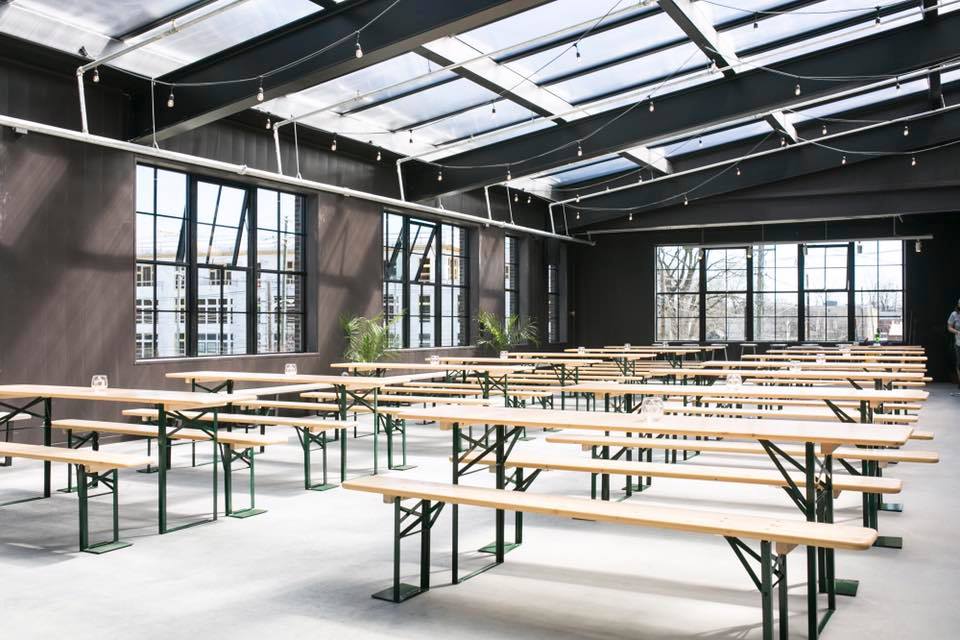Still Brewing: Columbus breweries attempt to find new footing amid COVID-19

Pivot is often a term used in start-up companies. It’s when a company decides that what it’s doing is working, but not entirely, so they move the strategy in a direction that is more profitable. It takes careful planning and months of execution to get it right. And when it comes to breweries in Columbus right now, there has been plenty of pivoting, however, very little time to prepare.
For Colin Vent, head brewer of Seventh Son Brewing Co., and Bob Szuter, co-founder of Wolf’s Ridge Brewing, there have been many shifts in their day-to-day operations. While both breweries are still operating—as they are considered essential business under the shelter-in-place order—their focus has moved from filling kegs for the various bars that carry their brews to bottling and distribution. More specifically, the breweries are finding new ways to get the beers into homes beyond the traditional method like stopping in at the bar, or picking up a case at the grocery store.
“We’ve had a very, very strong carry-out presence every single day,” Vent said. “We’re selling like 100 to 200 six-packs a day out of the little reach in cooler. We’ve never seen carry-out like this before; even on a good Saturday we wouldn’t sell that many.”
While much of the staff at the breweries are furloughed or laid off, this new addition of direct home delivery has provided small financial opportunities to the staff if they were interested.
“All of that is great, but it doesn’t make up for all revenue we are losing by not being able to sell pints,” Vent explained.
BROUGHT TO YOU BY
And that seems to be the issue at hand for Vent, Szuter, and presumably other breweries in the city. Breweries make a good portion of its profits through pint sales. When folks can’t visit the bar to grab a drink, the ripple effects quickly become an issue. Vent cited variables like long-term contracts with hops distributors as these pre-existing orders were made under the pretense of last year’s sales and this year’s projections. In other words, these breweries simply aren’t producing the same amount of beer as before, but the purchase orders of ingredients are still under contract.
For Szuter, he’s skeptical that the Payment Protection Plan—a loan designed to incentivize small businesses to keep employees on their payroll—just isn’t enough to cover all the costs that goes into operations.
“For us to bring back and match the full-time equivalent, we’d have to bring back 65 people and there’s just not a business for 65 people right now,” Szuter explained. “There’s enough [work] for maybe 20, 25 [employees]? Maybe 30 if we want to be really aggressive with labor.”
There’s also the lingering unknown that plays a major role for Szuter: will these loans be forgiven?
“It’s a big deal because if we are trying to bring 30, 40, 50 people back to work, we’re borrowing a lot of money to do that,” Szuter said. “If we have to pay that back within two years, that’s going to be a huge impact to our cash flow if we have a debt payment of $10,000 to $15,0000 a month.”
It’s been a marathon full of hurdles for these breweries. Szuter said as he and his team prepared all the required information on a Wednesday to apply for these loans, by Friday those requirements had changed forcing him to gather the new information needed and resubmit. Fortunately, WRB has been around for seven years and has built solid relationships with the banks they work with. It made getting this information less difficult, but still frustrating. These relationships, however, might not be the case for other breweries and bars.
“A lot of places don’t have the systems in place to look at the information as quickly as we might, Szuter said. “Five or six years ago when we were using QuickBooks, I don’t think we could’ve gotten the information as quickly as we needed to so we could get in the queue and apply for this.”
Szuter said he’s not only concerned for his own business, but other small businesses in Columbus as well. And it’s also why he’s asking our political leaders to step up and provide some clarity to this fast-paced and on-going situation.
And, in times like these, Vent said it’s crucial that the community supports local now more than ever.
“Buy hyper local,” Vent said. “This isn’t just like, ‘Oh, bummer! There’s less beer on the shelf. There’s a brewery out of business.’ And it’s like no! It’s people out of business. At the end of the day it’s people suffering. It’s not about the brand, like the Seventh Son IPA doesn’t give a shit if you drink it or not; it’s Barry and Tito and all the guys that work here. It’s those people that need the support.”
BROUGHT TO YOU BY




